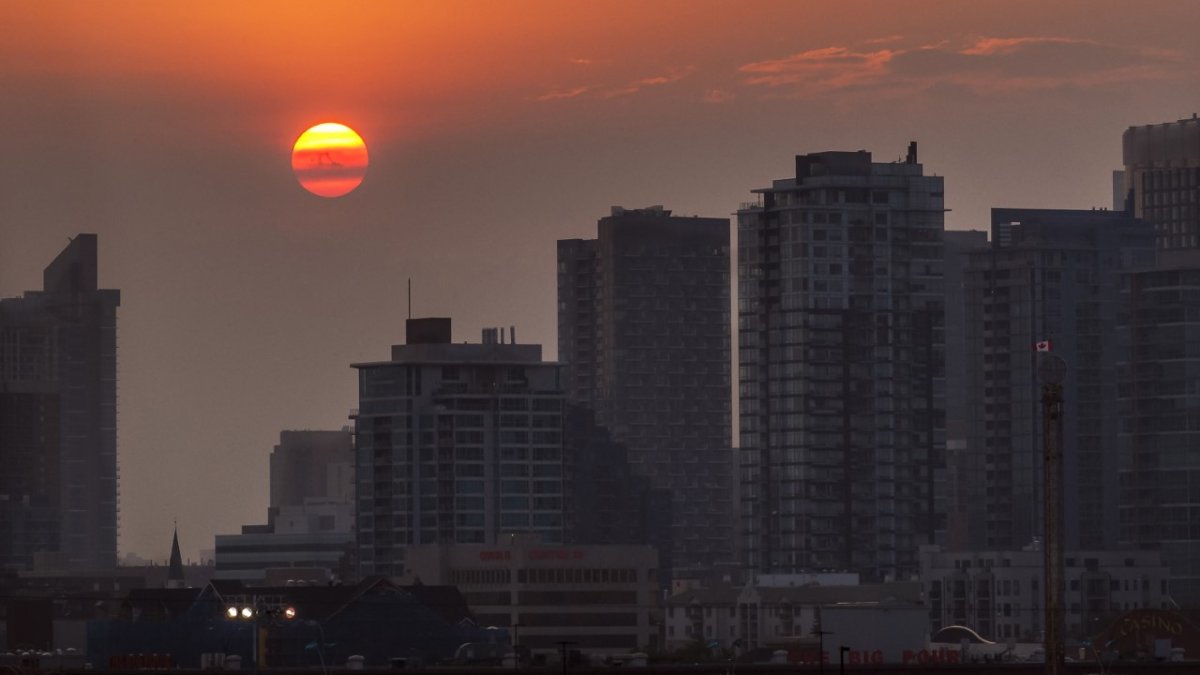On Thursday, Edmonton broke a record for most 30 C days in a year, Banff just had their hottest July ever and Calgary is on track for their smokiest summer yet.

Days at or above 30 C
According to data collected by Environment and Climate Change Canada (ECCC), both Calgary and Edmonton have already tripled the normal amount of 30 C days typically recorded in a year.
And summer isn’t over yet — temperatures in Alberta can reach the 30 C mark well into September.
| Location | As of Aug. 5, 2021 | Average |
| Fort McMurray | 15 | 6 |
| Edmonton | 15 | 4 |
| Red Deer | 8 | 4 |
| Calgary | 18 | 5 |
| Banff | 8 | 1 |
| Lethbridge | 26 | 18 |
| Medicine Hat | 38 | 27 |
On Thursday, Edmonton officially broke the record for most 30 C days recorded in one year, surpassing the previous record of 14 set in 1961.
The average number of days Edmonton reaches 30 C or higher is four.
The city of Calgary has also had significantly more 30 C days than normal.
As of Thursday, the city had recorded 18 days at or above 30 C. The yearly average is five.
The record number of 30 C days for Calgary is 23 and that was set back in 1936.
Calgary did, however, have its third-warmest July on record with a mean temperature of 19.4 C (average is 16.5 C). That’s not far from the number one spot, which was a mean temperature of 19.6 C in 1936.
Banff had its warmest July on record with a mean temperature of 18.5 C, which is almost four degrees higher than the normal of 14.6 C.
The mean temperature is an average of the highest and lowest temperatures recorded.
Smoky skies
Not only has it been a scorching-hot summer, it has also been a hazy one.
Smoke from wildfires burning in B.C. moved into Alberta in the middle of July and has stuck around since.
Calgary has dealt with almost 360 hours of smoky air as of Aug. 5, making it the second smokiest year so far. The most ever recorded was in 2018 when the city recorded 450 smoky hours.
Edmonton is experiencing their third smokiest year on record, with the number of smoky hours sitting at 83 as of July 31, which is still a ways away from the record of 229 smoke hours set in 2018.
ECCC said a “smoky hour” is when the YYC airport weather station reports visibility under 10 km due to smoke and only records that data from May until Sept.
“Smoke hours are relatively new, since about 2016, we have started to look at data about smoke conditions to help tell the story about forest fire smoke,” Alysa Pederson, ECCC meteorologist said.
Fall outlook
The meteorological fall season begins on Sept. 1, however, the more familiar astronomical fall season starts with the equinox Sept. 22.
Seasonal outlooks are currently forecasting a warmer-than-normal fall for parts of western Alberta.





Comments